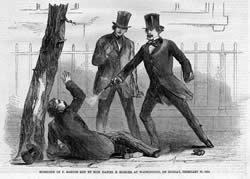Difference between Homicide and Manslaughter
Key Difference: Homicide is an umbrella term that covers the act of one human killing another human, which could be lawful as well as unlawful. Homicide is not always a punishable act under the criminal law and the ruling depends on the type of homicide it is. Manslaughter is a type of homicide, where one takes the life of another. The definition of manslaughter differs in different countries, and is usually gauged on the circumstances under which the killing occurred or on the state of mind of the killer.
The word homicide and manslaughter are often heard on the news when we hear about someone being accused of killing another person. Many people that are not well versed with legal definitions often assume that these mean the same thing. These terms are thrown around on TV, newspapers and books without a proper explanation for the general public. It often results in a massive confusion regarding the proper use of these words.
 These terms do not make much of a difference to the general public that are listening to the news as it usually means that someone died by the hands of someone else. However, these terms are completely different when accusing someone of committing a crime. The lawyers, judges and the jury must be able to differentiate and understand the different definitions between these terms. These terms play a huge role in the conviction of the accused. So, what are the exact differences between homicide and manslaughter?
These terms do not make much of a difference to the general public that are listening to the news as it usually means that someone died by the hands of someone else. However, these terms are completely different when accusing someone of committing a crime. The lawyers, judges and the jury must be able to differentiate and understand the different definitions between these terms. These terms play a huge role in the conviction of the accused. So, what are the exact differences between homicide and manslaughter?
Homicide is an umbrella term that covers the act of one human killing another human, which could be lawful as well as unlawful. The term ‘homicide’ also includes killing someone with a purpose of doing an evil deed as well as accidently killing someone in self-defense. Homicide is not always a punishable act under the criminal law and the ruling depends on the type of homicide it is. Murder and manslaughter are considered as types of homicide. The term is often used when it is unsure how and why the victim has died. Once, that is proven and clear, it is then termed under words.
There are three types of homicide:
Justifiable homicide: This homicide is done for the greater good. This homicide is considered excusable under special circumstances that need to be extensively proven. A justifiable homicide includes killing a person that was a threat to the safety of society such as rapist, murderers, etc. Killing a person in self-defense is also considered as a justifiable homicide.
Criminal homicide: Criminal homicide is when a person unlawfully kills another person with the intention of doing harm to that person. Criminal homicide also includes unintentional killings, where an innocent dies by accident. In many jurisdictions, criminal homicide automatically calls for capital punishment. Murder, voluntary/involuntary manslaughter and assisting someone in suicide are all considered to be criminal homicide. However, the punishments for each differ depending on the circumstances.
State-sanctioned homicide: State-sanctioned homicide is when a person that is performing the killing is approved by the state to kill someone. This includes capital punishment, war and authority forces (i.e. police, FBI, sheriff, etc.).
 Manslaughter is a type of homicide, where one takes the life of another. However, manslaughter is considered to be a slightly less serious crime than murder, but serious nonetheless. The definition of manslaughter differs in different countries, and is usually gauged on the circumstances under which the killing occurred or on the state of mind of the killer. The distinction between murder and manslaughter is attributed to the Ancient Athenian lawmaker Draco in the 7th century BCE.
Manslaughter is a type of homicide, where one takes the life of another. However, manslaughter is considered to be a slightly less serious crime than murder, but serious nonetheless. The definition of manslaughter differs in different countries, and is usually gauged on the circumstances under which the killing occurred or on the state of mind of the killer. The distinction between murder and manslaughter is attributed to the Ancient Athenian lawmaker Draco in the 7th century BCE.
Manslaughter is usually broken down into two categories:
Voluntary manslaughter: Voluntary manslaughter is when the killer has provocation for the murder, such as finding a spouse with a lover. In these circumstances, the homicide may even be termed as a crime of passion. It may even be in an instance such when a woman kills a rapist in order to get away. Voluntary manslaughter also cover when the killer in temporarily insane or not in the right state of mind. Essentially, voluntary manslaughter can be any instance when a person kills somebody intentionally but the circumstances leading to the homicide where such that the actions of the killer can be understood but still condemned. Punishment for this may be less or equal to murder depending on the circumstances.
Involuntary manslaughter: Involuntary manslaughter is when the killer has killed accidentally or without the intention of taking a life. This can include drunk driving, negligence, or assault without the intention of killing. Involuntary manslaughter is further categorized into constructive manslaughter and criminally negligent manslaughter. Constructive manslaughters include drunk driving incidents, running a red light, etc. Criminally negligent manslaughter is as the name suggests homicide due to negligence. The punishment for this will be less that murder, but may be less or equal to voluntary manslaughter.
Image Courtesy: en.wikipedia.org, moore.edu









Add new comment